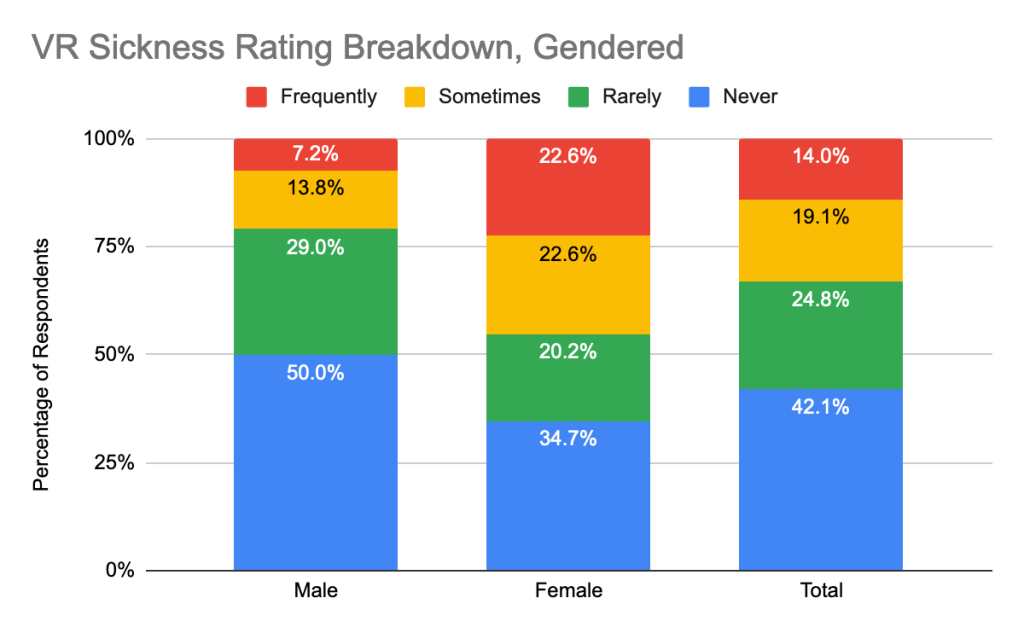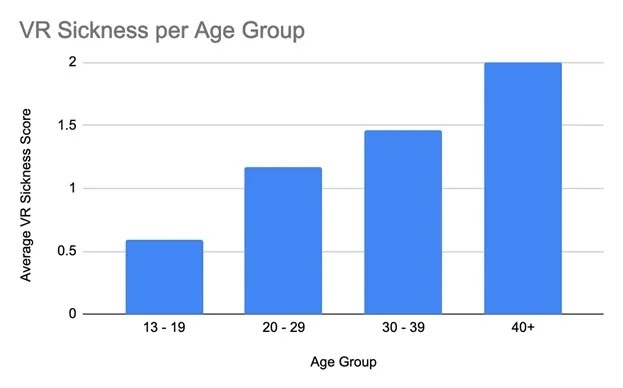The respondents were asked the following questions
- Your gender?
- How often do you experience motion sickness in a VR headset? Answer options: often, sometimes, rarely, never.
- Would you be able to adapt to a VR headset?
Following the survey, the following data were collected
The poll showed that 57.9% of respondents experienced seasickness. Among them, 14% experienced "motion sickness" "often", 19.1% - from time to time, and 24.8% - rarely. In addition, 22.6% of women had "frequent" experiences, which is more than three times higher than 7.2% of men. Similarly, women who never and rarely experienced motion sickness accounted for 54.9%, while men accounted for 79%. Overall, the survey results show that women are more prone to motion sickness than men.
Two-thirds of players who have previously been seasick in a VR headset were able to overcome this symptom and adapt to virtual reality, but there are far fewer women among them.

In terms of age, the survey shows that people over 40 are more likely to experience vertigo when using VR, while people aged 13-19 are least likely to experience the problem.

People who usually experience vertigo when traveling by car or airplanes are more prone to vertigo in VR.
Thus, the authors of the survey found a correlation between the sex of the VR player and the problems of the vestibular apparatus. Note, modern medicine claims that women are more susceptible to "seasickness".